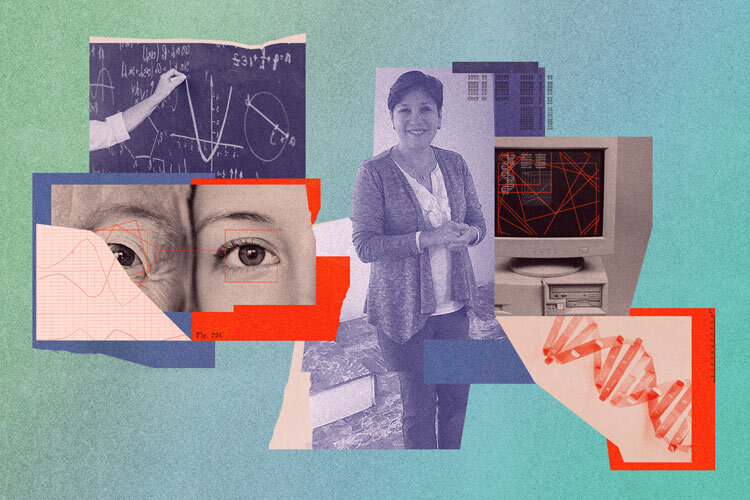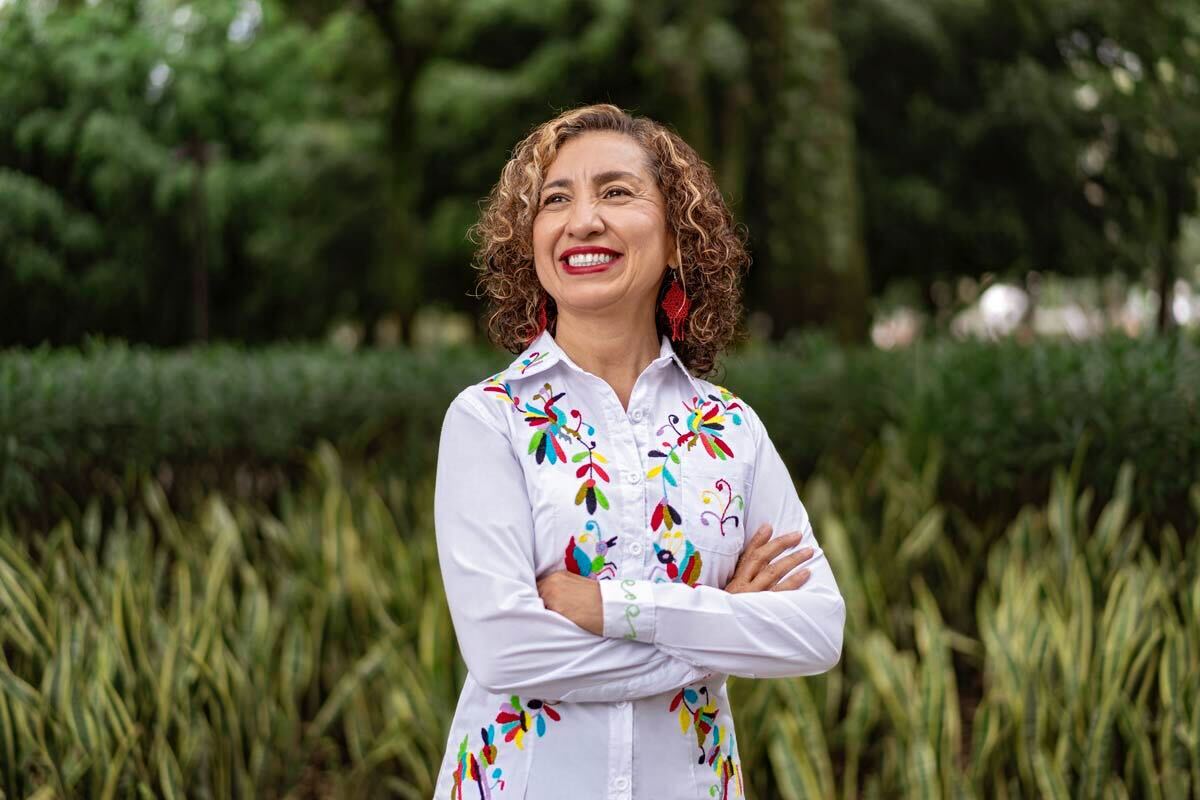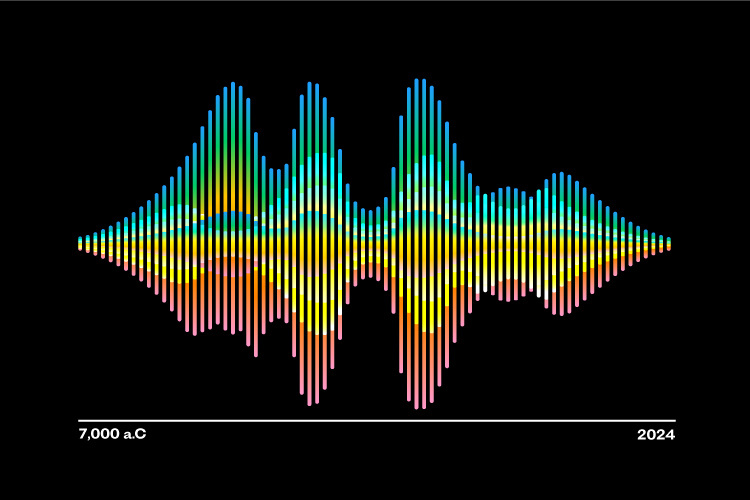From the age of 14, Claudia Rangel knew she wanted to be a mathematician. Her third-year junior high algebra teacher didn’t let students use pencils or paper: All exercises had to be solved by exercising their memory and only those who answered the problems correctly could sit down.
This was a challenge for Claudia: “I didn’t want to keep standing up,” she says in an interview for TecScience. That’s how she began to enjoy math, “For me it was a real pleasure to sit down and solve a matrix, spend the whole afternoon doing math.”
Today, Claudia Rangel is a research professor at the School of Engineering and Sciences on Tecnológico de Monterrey’s Querétaro campus. She earned a bachelor’s degree in mathematics at the Autonomous Metropolitan University (UAM) in Mexico, and a master’s degree and Ph.D. in mathematics at Claremont Graduate University in California.
She has dedicated over 17 years to genomic medicine research, where the work of mathematics and mathematicians is essential since genomic data is very large and complex, which is why it requires people who can “develop new mathematical and statistical methods, strategies, who know about computing, can develop algorithms, and analyze data.”

What Are You Going to Live On?
Claudia remembers that when she told her father she wanted to study mathematics, he said, “What are you going to live on?” But she has never lacked job opportunities or professional development.
“When you study math, they teach you to think, to develop analytical thinking, to visualize, to analyze, to question, to try to understand with all our might what a problem is about, and all of these are skills that are required for you to be good at your job, regardless of what that is,” she tells us.
“That’s why I believe that if you study mathematics, you can devote yourself to whichever field of work you’d like, whether that be social sciences, law, medicine, the environment, finance, or wherever you want, because you should contextualize your work. This gives you a lot of freedom,” she adds.
For Claudia, math has been a source of pleasure, work, and also empowerment. The feeling of being able to solve a problem and find a solution “has made me feel powerful.”
What would you say to girls or women who want to study or pursue mathematics?
The impact of mathematics can be seen in practically everything we do, so if you study math, you have the power to make an impact. The more women study math, the more the gender gap begins to narrow, because if you’re a mathematician you have the ability to think differently, and I believe that it gives you self-confidence. This is the recipe for success in any work environment.
Do you think it’s important there are more and more female mathematicians?
Absolutely. For example, I used to have all male students. Now, I have all female students. This is because I teach graduate school, so they see me. They see me start to talk about my world, about math, about data, and it seems achievable to them.
Does that mean that more women in mathematics inspire or encourage other women?
Yes.
Her History at Tec de Monterrey
Do you currently have any particularly exciting projects?
There are several projects at the Tec that were approved just last week. One of them is to do with aging, which ranges from issues such as cells and lack of collagen, to aging-associated diseases. What I want to do as part of this project is study neurodegenerative diseases in terms of aging. There is also a project on the microbiome and vaginal infections and their connection to premature births that I find very interesting.
How did you end up at the Tec?
When I returned to Mexico [in 2006], I joined the National Institute of Genomic Medicine (INMEGEN), which is in Mexico City almost directly opposite Tec de Monterrey. I was invited to give speeches, talks, and so a couple of Tec students contacted me, whom I received at INMEGEN on work placement. And I was delighted with those two guys, and that was when I learned about the Tec’s training capacity.
I started teaching a computer science class there, with the aim of bringing more students to my laboratory. And one day, when I had decided to leave Mexico City, I went to their job board and found the position I’m currently in.
Besides mathematics and research, what are some of your other passions?
Dogs. I have four dogs. When I’m not doing science, I’m simply playing with my dogs, or rescuing dogs. I have the whole kit for rescuing or helping street dogs in my SUV.

Did you find this story interesting? Would you like to publish it? Get in touch with our content editor to learn more at marianaleonm@tec.mx.


















